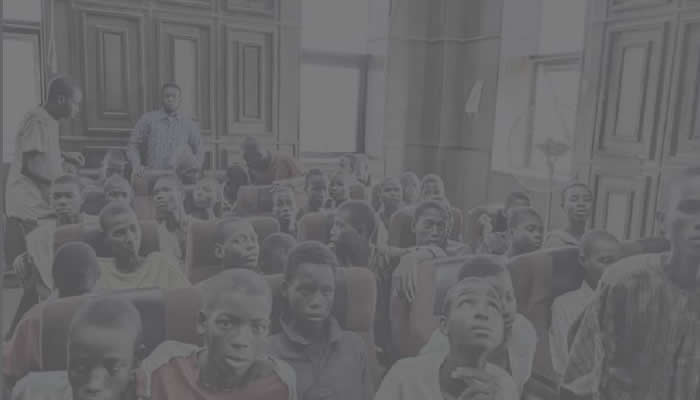On Monday, President Bola Tinubu ordered the release of 114 protesters from the #EndBadGovernance movement, which included 30 minors. The release marks a significant event in Nigeria, as the protesters were brought to the State House Auditorium in Abuja around 2:00 PM. The Vice President, Kashim Shettima, received them on behalf of Tinubu to facilitate their handover to their respective state governors. This action reflects a response to ongoing dialogues surrounding governance issues in Nigeria and highlights the administration’s willingness to address public dissent.
The release of the protesters was made possible by the intervention of the Attorney-General of the Federation, Lateef Fagbemi, who played a crucial role in advocating for their freedom. The legal proceedings against the protesters were dismissed by Justice Obiora Egwatu of the Federal High Court in Abuja upon the request of the Attorney-General’s office. This legal decision indicates a potential shift in how the government may approach civil demonstrations and dissent in the future.
The event was well-attended by notable political figures and government officials, including the Deputy Senate President Jubrin Barau and the Chair of the Committee on Appropriation, Abubakar Bichi. Additionally, Nigeria’s governors were present, with Uba Sani from Kaduna and Abba Yusuf from Kano among them. Their involvement emphasizes the importance of state leadership in addressing the concerns raised by the protesting group and signals their commitment to addressing the governance issues at hand.
Ministers from various sectors were also in attendance, reflecting a broad governmental interest in the matter. The Ministers of Education, Humanitarian Affairs and Poverty Reduction, and Environment, among others, were present, indicating that the administration is taking a multi-faceted approach to governance challenges. This gathering serves as a reminder that various sectors of government need to cooperate to address public grievances and improve the conditions that led to protests.
The unfolding events surrounding the protesters and their release underscore the ongoing dynamics of governance and public engagement in Nigeria. With a backdrop of escalating concerns regarding governance, public services, and economic hardship, the government’s handling of the situation may influence future protests and civic engagement. The handover of the protesters to their governors further suggests localized accountability for governance issues, as state leaders will be expected to address the underlying problems raised by the demonstrators.
In summary, the release of the #EndBadGovernance protesters signifies a notable moment in Nigeria’s political landscape, as it showcases both the administration’s responsiveness and the continuing challenges within the country’s governance system. As these events develop, the engagement between the government and citizens will likely shape the future discourse on governance and protest in Nigeria, emphasizing the need for constructive dialogue and tangible reform to address public grievances effectively.














